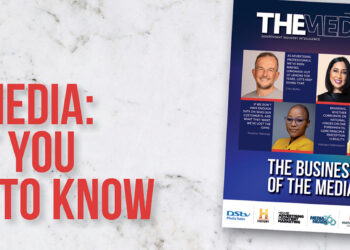The Democratic Alliance as accused the South African Broadcasting Corporation (SABC) of burying research it commissioned into its news bulletins as the findings were unfavourable to the public broadcaster.
Spokesman on communications, Marian Shinn, said ‘Project Kindle’ was rejected by the SABC’s market intelligence department because it delivered “bad news” about the reasons for the decline, since 2009, in the broadcaster’s news viewership.
“I am reliably informed that, because the research agency did not educate and inform research respondents ‘when their opinions and perceptions are wrong’, it was rejected by the SABC’s market intelligence department,” Shinn said in a statement.
The SABC did not respond to questions from The Media Online about the report.
Shinn said the market research was conducted in 2013, and that the focus groups used came from all South Africa’s race groups. The research agency is respected in its field.
Among its findings were:
- The majority of respondents feel that the SABC’s news is biased towards the ANC;
- The perception of political bias and pro-ANC political reporting creates low credibility of political reporting among SABC News viewers;
- Most consumers seek other news sources to find balanced political views of events such as Marikana or President Zuma’s compound at Nkandla;
- SABC 1 is believed to be the more biased of the SABC’s three free-to-air TV channels; and
- There is a perception that politicians make decisions on content rather than the editors.
Shinn said she would be writing to the chairman of parliament’s portfolio committee on communications, Sikhumbuzo Kholwane, to request that this report be brought before Parliament.
“Clearly, mismanagement and manipulation of its agenda by unscrupulous characters such as acting COO Hlaudi Motsoeneng have tarnished the public broadcaster’s reputation. This report suggests that the SABC is seen as a mouthpiece for the ANC, which is why we believe it has been buried. We will do what we can to ensure that the report is brought to light so that it can be debated and discussed in Parliament,” she said.
The Media Online asked SABC spokesman Kaizer Kganyago:
- Are you aware of Project Kindle and its findings?
- Was it commissioned to research the public broadcaster’s ‘declining viewership’?
- Did the SABC board see this report?
- Did CEO and acting COO, and the heads of news, see this report?
- How does the SABC respond to allegations of bias in its news reporting?
- Was this report incorporated into the process of revisiting the SABC’s editorial policy?
Public protector Thuli Madonsela, in a recent investigation into abuse of power at the SABC, found controversial acting COO Motsoeneng had acted unethically in a number of instances including lying about his qualifications, giving himself a 63% salary increase in one year, purging the broadcaster of his critics and enriching his supporters.
Shinn, via a series parliamentary questions, asked the SABC if the position of COO had been advertised, something Madonsela suggested should happen as a matter of urgency.
1) Whether advertisements to fill the position of the SA Broadcasting Corporation (SABC) chief operating officer have been placed; if not, (a) what are the reasons and (b) when will the advertisements be placed; if so, (i) where and (ii) when were the advertisements placed;
(2) Whether applications are closed; if not, when is the closing date for applications; if so, (a) when was the closing date for applications, (b) how many applicants applied and (c) when will the position be filled;
(3) What methods are being used to find and fill the position if no advertisements are to be placed?
And the reply? “The SABC informs me that the advertisement to fill the position of the SABC Chief Operating Officer was placed on 3 February 2013. It was later withdrawn due to legal action. There are ongoing negotiations between the individual who took legal action and representatives of the Department and SABC to settle this matter. (i) The previous advertisement was placed in the Sunday Times and City Press. (ii)The aforesaid advertisement was placed on 3 February 2013.”
That was over a year ago.














